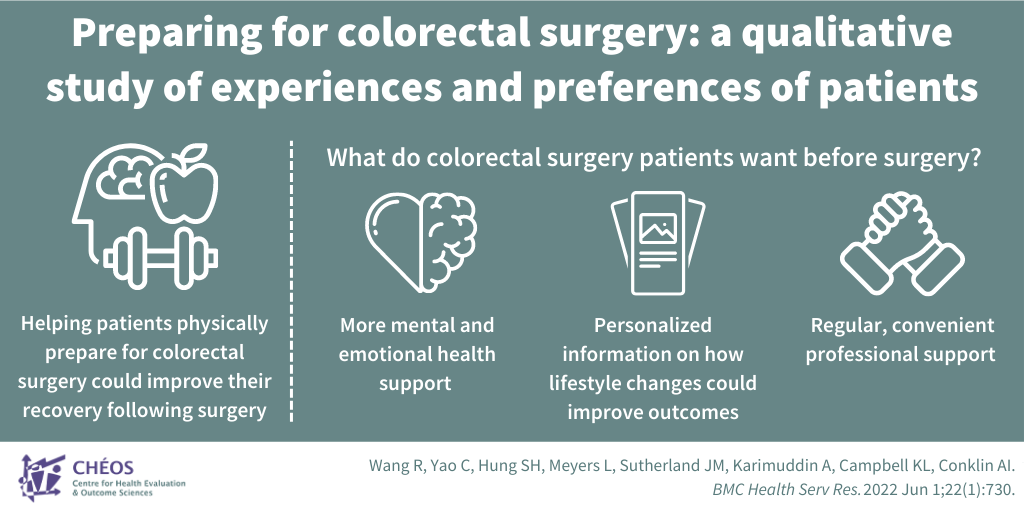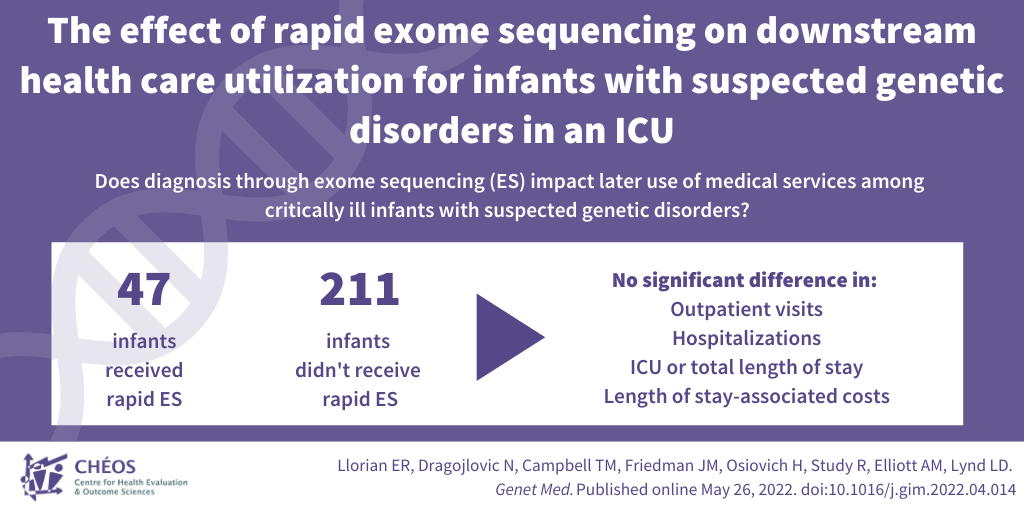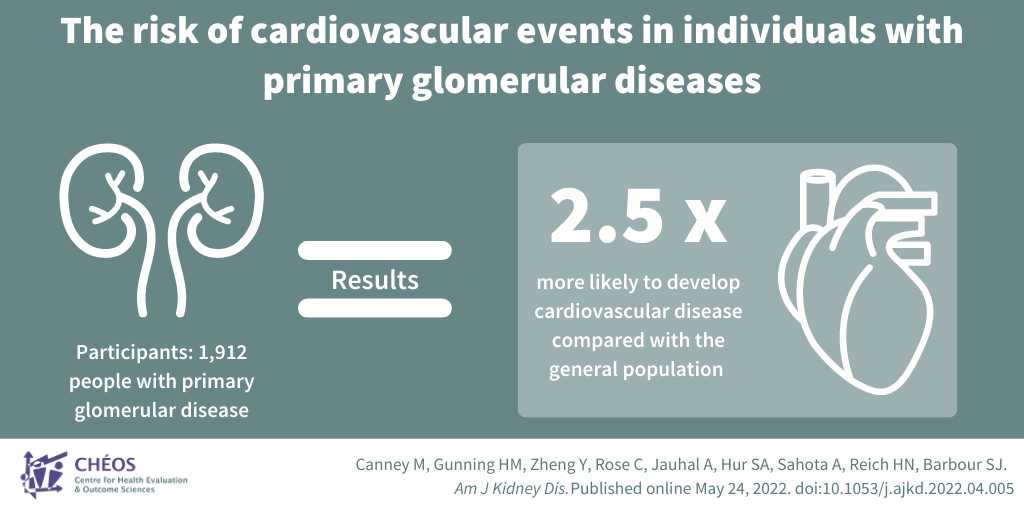The Evidence Speaks Series is a recurring feature highlighting the latest in CHÉOS research. This series features summaries of select publications and is designed to keep media and the research community up to date with CHÉOS’ current research results in the health outcomes field.
To ensure this research is quick and easy to share, we are now providing social cards that you are free to save and use as you see fit.
Wang R, Yao C, Hung SH, Meyers L, Sutherland JM, Karimuddin A, Campbell KL, Conklin AI. Preparing for colorectal surgery: a qualitative study of experiences and preferences of patients in Western Canada. BMC Health Serv Res. 2022;22(1):730.
Helping patients physically prepare for colorectal surgery could improve their postoperative recovery. Speaking with 19 patients scheduled for surgery, CHÉOS Program Head of Health Services and Outcomes Dr. Jason Sutherland, Scientist Dr. Annalijn Conklin, and colleagues from UBC determined that patients experienced inadequate preoperative support and felt that more attention needs to be paid to mental and emotional health and wellbeing. In addition, patients highlighted the need for reliable, personalized information that clarified how lifestyle modifications, such as exercise and diet, before surgery could improve outcomes so they can make informed decisions about their care. The knowledge gathered from this study could help inform future research and delivery of personalized preoperative care to patients waiting for colorectal surgery.

—
Llorian ER, Dragojlovic N, Campbell TM, Friedman JM, Osiovich H, Study R, Elliott AM, Lynd LD. The effect of rapid exome sequencing on downstream health care utilization for infants with suspected genetic disorders in an intensive care unit. Genet Med. Published online May 26, 2022.
Genome-wide sequencing (GWS), including exome sequencing (ES; sequences the part of the genome responsible for building proteins), can be useful for identifying causes of genetic diseases. While previous studies have analyzed the cost-effectiveness of GWS with regard to testing and diagnostics, there is a lack of information on downstream costs and outcomes. To help fill this gap, CHÉOS Scientist Dr. Larry Lynd and team recently studied the downstream use of medical services among critically ill infants with suspected genetic disorders who were admitted to intensive care units (ICUs) and received rapid ES. Comparing 47 infants who received rapid ES with 211 who did not, the researchers determined that there was no significant difference in outpatient visits, hospitalizations, ICU or total length of stay, or length of stay-associated costs between the two groups. Through collecting and comparing data on utilization, patient characteristics, and clinical outcomes, we could generate a robust guide on the most efficient use of resources going forward.

—
Canney M, Gunning HM, Zheng Y, Rose C, Jauhal A, Hur SA, Sahota A, Reich HN, Barbour SJ. The Risk of Cardiovascular Events in Individuals with Primary Glomerular Diseases. Am J Kidney Dis. Published online May 24, 2022.
CHÉOS Scientist Dr. Sean Barbour and a cross-Canada group conducted a population-level cohort study to establish the risk of cardiovascular disease (CVD) among patients with primary glomerular diseases compared to the general population. Using population-level data and a centralized kidney biopsy registry, the research team found that patients with primary glomerular diseases (membranous nephropathy, minimal change disease, IgA nephropathy, and focal segmental glomerulosclerosis) were approximately 2.5 times more likely to experience CVD compared with the general population. This risk varies depending on the precise type of glomerular disease. The researchers concluded that additional research would help elucidate the reasons behind the increased risk of CVD to enable health care providers to intervene earlier.




